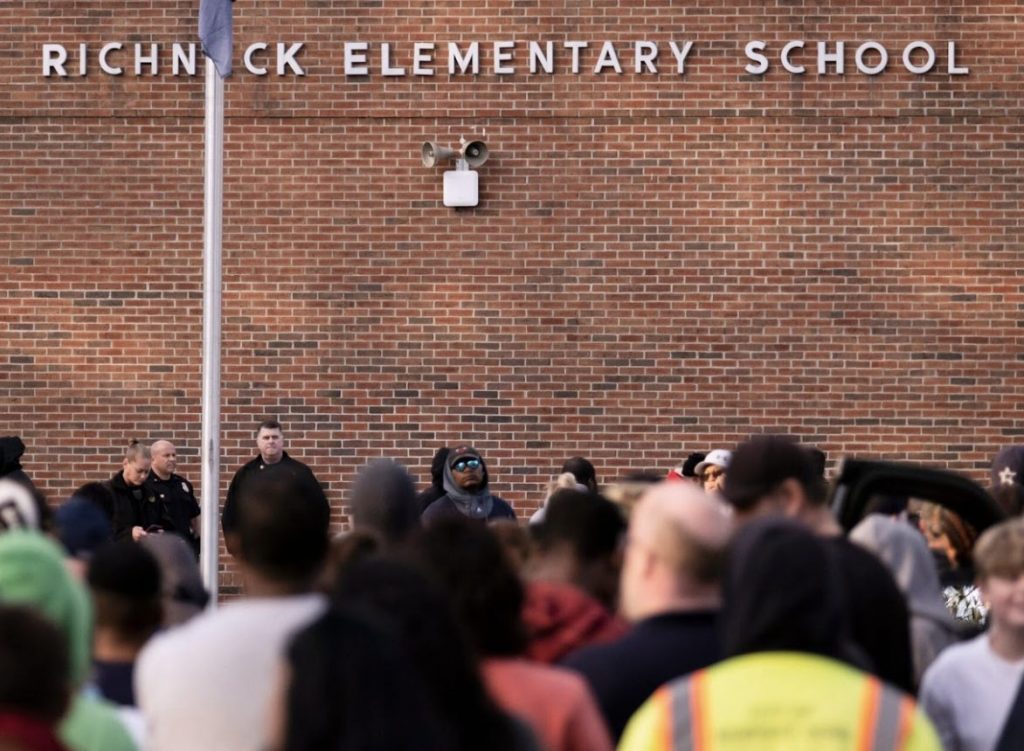By: Lenora Kirkland

On Jan. 6, 2023, another school shooting made national headlines, only this time, the perpetrator was a six-year-old boy. The incident occurred in a first-grade classroom at Richneck Elementary School located in Newport News, Virginia.
The student in question found the weapon in his home, brought it with him to class and shot his 25-year-old first-grade teacher, Abigail Zwerner. Although the injuries sustained by Zwerner, were declared life-threatening at the time of the shooting, her recovery has been positive. She has since been released from the hospital where she was receiving care for her sustained injuries.
According to the child’s parents, the student was suffering from an “acute disability” at the time of the shooting and is currently receiving treatment at a local hospital along with a predetermined “care plan” that the parents had already begun following with teachers and staff at Richneck Elementary. This plan involved parental supervision to and from school each day. The day of the shooting was one of the first days in which the student did not receive such supervision.
No more information has been provided as to the specific disability the child faces, or what this “care plan” entails. With the investigation still ongoing, authorities are continuing to examine the cause of how a child came to be in possession of a lethal weapon.
The parents of the child have released a statement to ABC News saying, “Our family has always been committed to responsible gun ownership and keeping firearms out of the reach of children.” According to recently published information on the case, the weapon used was legally purchased by the child’s mother at an earlier date. With little precedent in cases in which a child is the perpetrator of such a crime, the investigation continues to rattle the American justice system. Authorities have declared that the act was intentional, causing a general outcry over whether or not it is just to declare intent in the case of a six-year-old child wielding a weapon.
In the state of Virginia, juvenile sentencing is restricted to children over the age of 11 making it impossible to convict the six-year-old. Rather, it seems that the parents of the child will be more closely examined for their role in the incident. State laws do exist that prohibit the storage of a loaded handgun in homes where a child under the age of 14 is in residence, which could be used to make a case against the child’s parents.
Despite the tragedy of this incident, it is not the first time a child under the age of 9 has used a lethal weapon in a school setting. In 2000 a similar story made headlines when a six-year-old in Michigan killed his fellow classmate after bringing a lethal weapon to school. According to BBC, the family has since “pleaded no contest to involuntary manslaughter.”
Richneck Elementary has also been heavily criticized for its handling of the incident. According to relevant information released during the investigation, school employees had been made aware of the possibility that the student was in possession of a weapon. Despite this crucial foresight, a thorough search of the child’s bag yielded no results. The incident has sparked numerous critique of the American public school system. In an interview with the Press Herald, local high school librarian Nicole Cook said, “Every day in every one of our schools, teachers, students and other staff members are being hurt. Every day, they’re hit. They’re bitten. They’re beaten. And they’re allowed to stay so that our numbers look good.”
The recent case in Virginia is still being handled by local authorities and judges to determine exactly how such a tragedy was once again allowed to occur in the United States school system.
Sources: ABC News, AP News, BBC, New York Times
